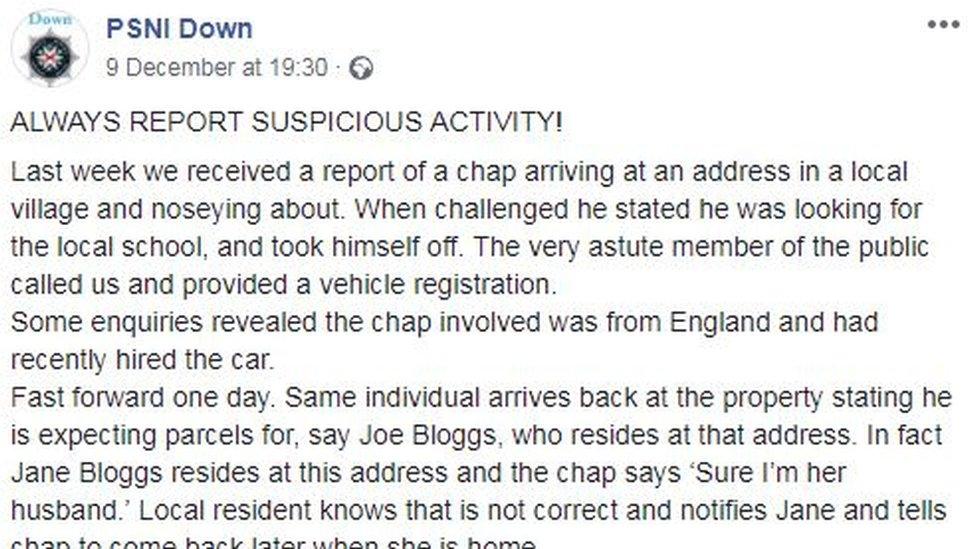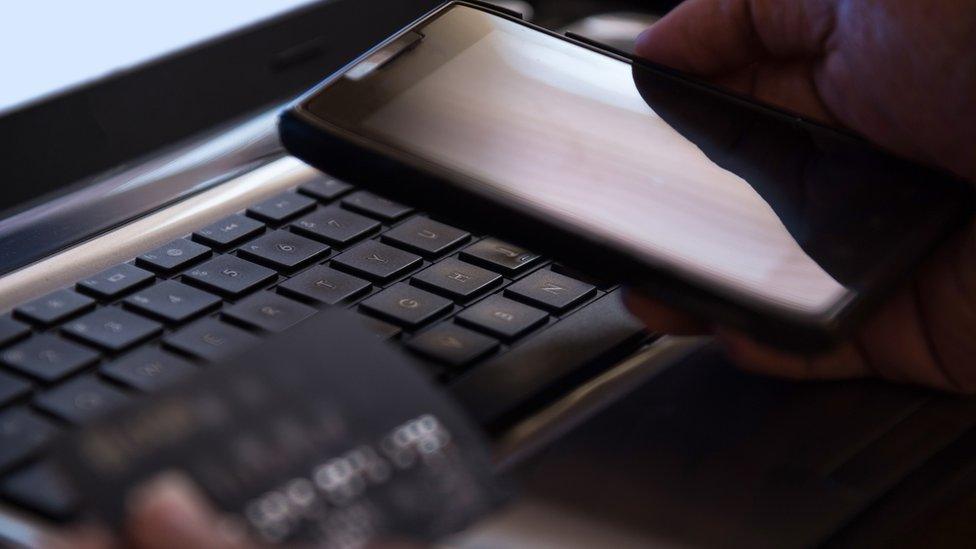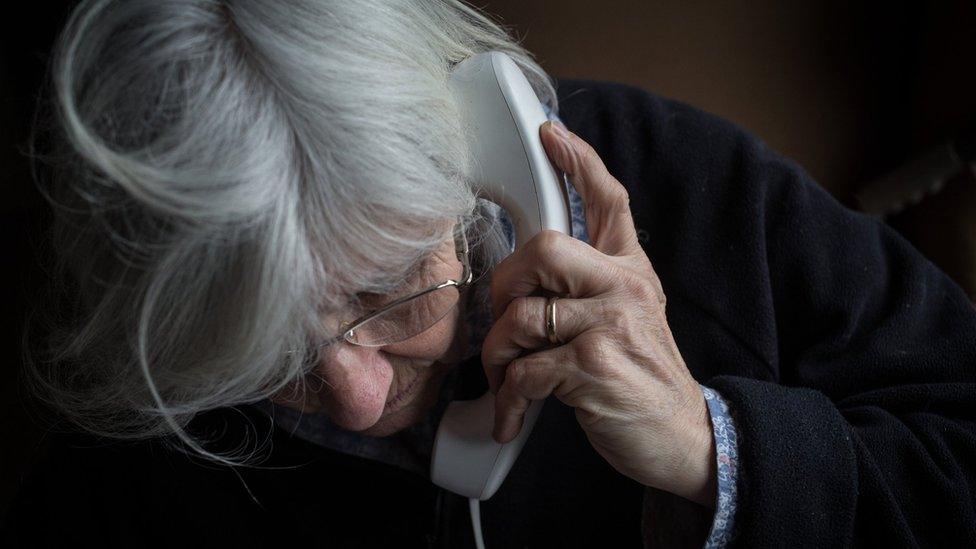Scam alert after £3,000 phone delivery to woman's home
- Published
- comments

Some £3,000 worth of iPhones and Apple technology have been delivered to a woman's home as part of a suspected scam, police have said.
It comes as the PSNI warn people to be vigilant of all year-round scams.
In the latest incident, a woman who lives in a village in County Down was initially alerted to suspicious activity on her account by her bank.
Then tech equipment worth a total of £3,000 that she had never ordered was posted to her address.
The PSNI in County Down posted the story on its Facebook page., external
Suspicions were raised when a local resident spotted a man near the woman's home, claiming he was waiting for a package.
'Looking for a local school'
When initially challenged, the man said he was looking for a local school and left.
However, he returned the following day, claiming he was waiting for a package.
Police said that when he was challenged, he claimed that he was the woman's husband.
A local resident knew he was not and alerted her. The man then left.

When the woman came home, she found three parcels addressed to her containing Apple hardware that she did not order.
Police said that they arrested a man the following day for "various offences".
He has been released on bail while police enquiries continue.
All-year round scams
Ch Supt Simon Walls said that this type of scam, whereby people obtain credit card details and then order electrical items to be delivered to a certain address, is "not particularly common".
"If you do receive goods to your address that you are not expecting, go to the company that they came from or your bank if a transaction has occurred," he told BBC News NI.
Ch Supt Walls said that scamming was an all year-round concern with "no particular pattern of seasonal crime" detected.
However, he warned the increasing number of online shoppers to be on their guard at this time of year.
"Many people will see good deals. It could be that you are buying counterfeit goods or you could enter credit card details and then find out there is actually nothing behind the website."
The most prevalent scams continue to involve someone claiming to be from HMRC or a broadband company.

"The computer security scam is what has cost people the most money in the last few months, people are losing thousands of pounds," he said.
"A person is told that there is a problem with their broadband or computer, the caller will then offer to solve the problem by software such as Teamviewer which allows that person remote access to your computer.
"Fixing the problem for you means emptying your account."
Put the phone down
With callers pretending to be from HMRC, it was previously the case where people "got a warning that they owed £500 and then threats would follow".
"That has changed now and people are receiving a text message offering them a rebate, but then they click on a link or message."
Ch Supt Walls urges anyone who receives such a call to "put the phone down straight away".
"While data breaches do occur and scams result from that there has to be [in the main] human interaction for a scam to succeed.
"HMRC will never ring you and demand payment. If you get a call from a company, wait a while and then ring the company's number and ask them whether they were ringing for you.
Advise elderly relatives
"Don't be rushed or pressurised. These are things that if there was a real problem with, such as broadband, there is very little rush with anyway.
"It is not on every occasion that the bank will refund your money."
Police are encouraging people to take some simple additional steps to avoid becoming the latest victim of a scam as 2018 draws to a close.
"Follow the updates on the Scamwise NI Facebook, external page, and if you have elderly relatives who may not be as IT literate please educate them of the dangers," said Ch Supt Walls.
"People can report scams or attempted scams online at Action Fraud or by ringing us on 101."
- Published2 August 2018

- Published7 November 2018

- Published26 September 2018
